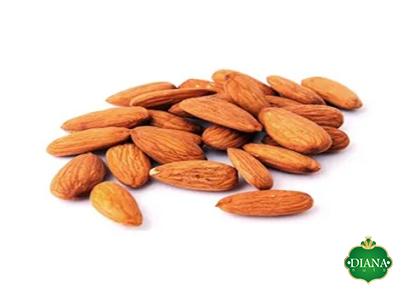When it comes to healthy snacking options, nuts have gained immense popularity worldwide. They are not only delicious but also loaded with essential nutrients that promote overall well-being. As a result, the demand for nuts, both in retail stores and the food industry, has witnessed steady growth. This article will provide an overview of nuts in bulk, focusing on the wholesale nut industry, its market trends, benefits, challenges, and potential future growth.
Market Trends:
The wholesale nut industry has experienced significant growth in recent years, primarily due to the rising awareness of the health benefits associated with nuts. Consumers are increasingly adopting healthier eating habits, including incorporating nuts into their daily diets. Additionally, the growing popularity of vegan and vegetarian diets has contributed to the increased demand for nuts as a protein-rich alternative to meat.
The market for nuts in bulk is expected to continue expanding as more individuals recognize the importance of a balanced diet and as various industries, such as baking, snacking, and confectionery, seek to incorporate nuts into their products. Furthermore, the surge in e-commerce platforms has made it easier than ever for consumers to access bulk nuts directly from wholesalers, further driving the market growth.
Benefits of Nuts:
Nuts are not only delicious but also offer numerous health benefits. They are a rich source of protein, healthy fats, fiber, vitamins, and minerals. Including nuts in one’s diet has been linked to various health advantages, such as reducing the risk of heart disease, improving brain function, aiding weight management, and controlling blood sugar levels. Moreover, nuts are known to provide an excellent source of energy and can help promote satiety, making them a popular choice for fitness enthusiasts and those aiming to maintain a healthy weight.
Challenges in the Wholesale Nut Industry:
While the demand for nuts in bulk continues to rise, the industry also faces several challenges that wholesalers must navigate. One key challenge is ensuring product quality and freshness, considering nuts have a limited shelf life due to their high oil content. Wholesalers must implement effective storage, handling, and distribution practices to maintain the quality and freshness of the nuts, ensuring customers receive the highest standard of products.
Another hurdle for wholesalers is managing procurement and supply chain logistics. Nuts are harvested seasonally, and fluctuations in weather conditions or other factors can impact the supply and availability of certain nut varieties. Wholesalers must establish strong relationships with suppliers, often located in various global regions, to ensure a reliable and consistent supply of nuts throughout the year.

Packaging and Presentation:
In the wholesale nut industry, packaging and presentation play a crucial role in attracting customers and maintaining the product’s integrity. Bulk nuts are often sold in different sizes and packaging options, including bags, cartons, or containers. Wholesalers must carefully choose packaging materials that ensure product freshness and durability, while also considering environmental sustainability and consumer preferences.
Furthermore, effective labeling and branding are essential to differentiate products in the market. Obtaining the necessary certifications, such as organic or fair trade, can also add value for customers searching for sustainable and ethically sourced nut products.
Future Growth and Opportunities:
The future of the wholesale nut industry appears promising, driven by changing consumer preferences and an increased focus on health-conscious eating. Key factors that contribute to the industry’s growth include:
1. Innovation and product diversification: Wholesalers are continuously exploring new ways to add value to their products through product innovations, such as flavored nuts, nut mixes, and nut-based snack products. This diversification allows them to cater to a wider consumer base and target specific dietary preferences.
2. Emerging markets: Developing economies are witnessing an increase in disposable income, leading to a surge in demand for premium food products. This presents an opportunity for wholesalers to tap into new markets and expand their customer base globally.
3. Rising popularity of plant-based diets: As the number of individuals adopting plant-based diets continues to rise, the demand for nuts as a protein-rich substitute for animal products is set to increase. Wholesalers can position themselves to cater to this growing market by offering a wide range of nut options and value-added products.
4. Expansion of e-commerce: The growth of online marketplaces and direct-to-consumer models has made it easier for wholesalers to reach a wider audience. Building robust e-commerce platforms and employing effective digital marketing strategies can contribute significantly to the future success of wholesalers in the nut industry.
Conclusion:

The wholesale nut industry is experiencing significant growth, driven by increasing consumer awareness of the health benefits of nuts and changing dietary preferences. Wholesalers play a vital role in meeting the rising demand for nuts in bulk, ensuring product quality, efficient supply chain management, and appealing packaging. By capitalizing on emerging opportunities and addressing industry challenges, wholesalers can position themselves for sustained growth and profitability. As the popularity of nuts continues to rise, the future of the wholesale nut industry looks promising, with an evolving market and expanding consumer base.Wholesale Nut Industry: Opportunities and Challenges for Businesses
1. Market Analysis:
The wholesale nut industry has witnessed rapid growth in recent years, driven by increased consumer demand for healthy snacking options. According to market research, the global nuts market is expected to reach a value of $115 billion by 2025, with a compound annual growth rate (CAGR) of 4.5%. This presents a lucrative opportunity for businesses operating in the wholesale nut industry.
2. Product Diversification:
One of the key strategies for businesses in the wholesale nut industry is to focus on product diversification. Offering a wide range of nut varieties, including almonds, walnuts, pistachios, cashews, and hazelnuts, enables businesses to cater to the differing tastes and preferences of their target customers. Additionally, creating value-added products like flavored nuts, nut mixes, and nut-based snacks can help businesses stand out in the market and attract a broader consumer base.
3. Quality Assurance and Certifications:
Maintaining the highest quality standards is imperative in the wholesale nut industry. Businesses must focus on sourcing nuts from trusted suppliers who adhere to strict quality control measures. Implementing robust inspection processes and ensuring compliance with industry regulations helps maintain consistent quality across the entire supply chain. Furthermore, obtaining certifications such as organic, Non-GMO, and fair trade can enhance the reputation and appeal of the products, appealing to health-conscious and ethically minded consumers.
4. Global Sourcing and Supply Chain Management:
Given that nuts are harvested seasonally and their availability varies across different regions, businesses in the wholesale nut industry often engage in global sourcing to ensure a year-round supply of products. Building strong relationships with suppliers, both domestically and internationally, is crucial for securing consistent and high-quality nut supplies. Additionally, efficient supply chain management plays a vital role in minimizing costs, reducing transportation delays, and ensuring product freshness.
5. Health and Wellness Trends:

The rising awareness of the health benefits associated with nuts has fueled their demand among consumers. Businesses in the wholesale nut industry can leverage this growing trend by positioning nuts as a healthy snacking option. Educating consumers about the nutritional value of different nut varieties, promoting their role in a balanced diet, and highlighting their specific health benefits can help businesses attract health-conscious customers.
6. Sustainability and Ethical Sourcing:
In today’s market, sustainability has become an essential aspect of any business. Conscious consumers are increasingly seeking eco-friendly and ethically sourced products. Businesses in the wholesale nut industry can adopt sustainable practices, such as using eco-friendly packaging materials, minimizing waste, and supporting fair trade initiatives. Communicating these efforts to customers through labeling and marketing can create a competitive advantage and enhance brand value.
7. Innovation and New Product Development:
Continuous innovation is crucial for businesses to stay ahead in the competitive wholesale nut industry. Exploring new product development opportunities, such as introducing new flavors, roasted or seasoned nuts, or nut-based spreads, can attract a diverse customer base and boost sales. Conducting market research to understand emerging consumer trends and preferences can provide valuable insights for product innovation.
8. E-commerce and Direct-to-Consumer Models:
The rise of e-commerce platforms and direct-to-consumer models has revolutionized the way businesses operate in the wholesale nut industry. Establishing a strong online presence and investing in user-friendly e-commerce platforms can expand market reach and enable businesses to connect directly with consumers. Leveraging social media platforms and digital marketing strategies can also help businesses engage their target audience and drive sales.
9. Partnership with Retailers and Distributors:
Collaborating with retailers and distributors is an effective way for businesses in the wholesale nut industry to expand their market presence. Partnering with established retailers allows businesses to tap into existing customer networks and gain access to a wider consumer base. Additionally, working with distributors can help businesses streamline their supply chain and ensure efficient distribution of their products to retail stores and other distribution channels.
10. Branding and Marketing:

Creating a strong brand identity is essential for standing out in the competitive wholesale nut industry. Developing a distinctive logo, packaging design, and brand messaging can help businesses build a recognizable and trusted brand. Leveraging digital marketing strategies, including social media advertising, influencer collaborations, and content marketing, can effectively promote products and engage target consumers.
Conclusion:
The wholesale nut industry presents significant opportunities for businesses willing to adapt to changing consumer preferences and industry trends. By focusing on product diversification, maintaining quality standards, implementing sustainable practices, and embracing digital marketing strategies, businesses can thrive in this lucrative market. Nuts, with their health benefits and versatile applications in various industries, continue to be sought-after by consumers worldwide, making the wholesale nut industry an attractive and profitable business venture.









